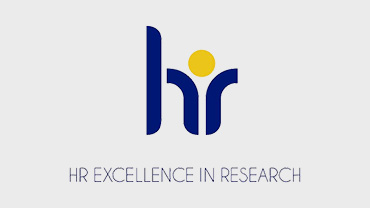Explore our research
Concordat to support the career development of researchers
The University of Leicester has taken a number of concrete steps to implement the principles of the Concordat to Support the Career Development of Researchers, and review of progress against our Concordat Action Plan is now firmly embedded within core structures and practices. The University of Leicester is also a signatory of the revised Concordat to Support the Career Development of Researchers.
The University was awarded the European Commission ‘HR Excellence in Research’ award in recognition of its commitment to its implementation of its Concordat Action Plans and has held this continually since 2011, most recently retaining the HREiR Award following the ten-year review. The review of progress against the University of Leicester’s Concordat Action Plan 2021-2023 has been undertaken via a number of consultation mechanisms and strategic interventions, including:
- Feedback and discussions captured through workshops, meetings, committees, surveys, and similar mechanisms throughout 2021-2023
- Data from the Culture, Employment and Development in Academic Research Survey (CEDARS) 2021 and 2023
- ECR Development Groups and College ECR Leads
- ECR and Research Staff Career Enhancement Sub-Committee ECR Development Groups
Concordat Action Plan 2023-2026
Our action plan for the period 2023-2026 is co-ordinated by the Doctoral College and monitored by the ECR RS Career Enhancement Sub-Committee and will focus on aspects surrounding training and development time, career discussions, appraisals, induction processes, and mentoring.
Our success measures will be:
- An increase in the time RS and ECRs spend on development activities and keeping records of their continued professional development
- An increase in RS and ECRs having appraisals/PDDs and those being perceived as useful
- An increase in RS and ECRs having discussions about their career development and maintaining a career development plan
Concordat documentation
- HR EiRA Report September 2023 (PDF, 178kb)
- Concordat Action Plan 2023-2026 (PDF, 219kb)
- Concordat Action Plan 2021-2023 Reviewed 2023 (PDF, 335kb)
- HR EiRA Report September 2021 (PDF, 231kb)
- Concordat Action Plan 2021-2023 (PDF, 325kb)
- Concordat Action Plan 2019-2021 Reviewed 2021 (PDF, 1MB)
- Concordat Action Plan 2019-2021 (PDF, 409kb)
- HR Excellence in Research Award Review 2019-2021 (PDF, 177kb)
- HR Excellence in Research Concordat Action Plan 2017-2019 (PDF, 527kb)
- HR Excellence in Research 2017-2019 Contextual Report (PDF, 261kb)
- HR Excellence Review 2015 (PDF, 161kb)
- Leicester Concordat Progress and Action Plan 2015-17 (PDF, 249kb)
- Institutional action plan 2013-2015 - short version (PDF, 251kb)
- Institutional action plan 2013-2015 - long version (PDF, 286kb)
- Review of progress 2011-2013 and next steps 2013-2015 (PDF, 337kb)
- Institutional action plan 2011-13 (PDF, 496kb)
Defining the beneficiaries
The main beneficiaries of the implementation of the researcher development concordat are those employed to conduct only research (commonly known as Research Staff) and Early Career Researchers (ECRs) on research only or teaching and research contracts.
Research Staff (RS) perform a variety of roles and have a range of responsibilities, and their contribution is critical to the University’s research output. What unites them all is the fact that they are all on research-only contracts, and funded externally. Typically, research staff are post-doctoral, though not all research staff may have a PhD. There are usually 480 to 520 research staff at the University of Leicester. Typical job groups: post-doctoral researchers, research assistants, research associates, research technical support, research facility managers.
Early career researchers (ECRs) are harder to define, as definitions of what constitutes ‘early’ can vary considerably. Some funding bodies see it as years since a PhD; others put a figure on the number of years since getting a tenured post. Some define it as those not yet fully independent but with a substantial research background (PhD or equivalent research experience). They might also be journeying towards research independence or research leadership. Allowances also have to be made for breaks in career for caring or other responsibilities. Typical job groups: post-doctoral researchers, research associates, research fellows, lecturers.
HR Excellence in Research Award
 A UK-wide process, incorporating the QAA Code of Practice for Research Degree Programmes and the Concordat to Support the Career Development of Researchers, enables institutions to gain the European Commission’s ‘HR Excellence in Research’ badge, acknowledging alignment with the principles of the European Charter for Researchers and Code of Conduct for their Recruitment.
A UK-wide process, incorporating the QAA Code of Practice for Research Degree Programmes and the Concordat to Support the Career Development of Researchers, enables institutions to gain the European Commission’s ‘HR Excellence in Research’ badge, acknowledging alignment with the principles of the European Charter for Researchers and Code of Conduct for their Recruitment.